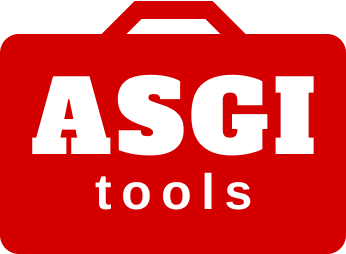A Lightweight ASGI Toolkit for Building Fast ASGI Applications

asgi-tools is a lightweight ASGI toolkit designed to streamline the development process of ASGI applications. Whether you are building a web framework or middleware tools, asgi-tools provides the necessary components to build efficient and performant ASGI applications.
Overview
asgi-tools is built to support the most popular async Python libraries, including Asyncio, Trio, and Curio. It provides a range of features, such as parsing ASGI scopes, working with websockets, routing HTTP requests, serving static files, and processing the lifespan cycle. Additionally, asgi-tools includes a test client with websockets support for testing ASGI applications.
System Architecture and Technology Stack
asgi-tools is built on top of the ASGI specification, which allows it to integrate with ASGI HTTP servers like uvicorn, daphne, and hypercorn. The toolkit is written in Python and requires Python 3.8 or higher to run. With its support for Asyncio, Trio, and Curio, asgi-tools offers flexibility and compatibility with different async Python libraries.
Data Model
asgi-tools provides several components to work with ASGI scopes, requests, and responses. The Request component allows developers to parse ASGI scopes and gather information such as URLs, headers, cookies, and request data. The Response component enables developers to send various types of HTTP responses, including text, HTML, JSON, SSE (Server-Sent Events), files, and HTTP errors. The ResponseWebsocket component facilitates working with websockets.
Well-Documented APIs, Security Measures, and Scalability
asgi-tools emphasizes the importance of well-documented APIs, making it easier for developers to understand and utilize its features. It also encourages the implementation of security measures to protect applications from common vulnerabilities. Furthermore, asgi-tools provides strategies for scalability and performance, enabling applications to handle high traffic loads efficiently.
Deployment Architecture and Development Environment Setup
To deploy an asgi-tools application, an ASGI HTTP server like uvicorn, daphne, or hypercorn is required. The toolkit can easily be installed using pip. Development of asgi-tools applications can be done with any code editor or integrated development environment (IDE) that supports Python. It is recommended to follow coding standards and best practices for maintaining clean and organized code.
Error Handling, Logging, and Comprehensive Documentation
asgi-tools offers robust error handling mechanisms and supports logging to help developers identify and troubleshoot issues effectively. Comprehensive documentation is available for the components, functions, and classes provided by the toolkit. Adhering to documentation standards ensures that maintainers and other developers can understand and contribute to the project easily.
Maintenance, Support, and Team Training
asgi-tools is actively maintained by its creator and the open-source community. Bug reports, suggestions, and contributions can be made through the GitHub issue tracker. The project is licensed under the MIT license, allowing for flexibility in usage and contributions. As the toolkit gains popularity, community support and training resources are expected to grow, providing developers with additional learning opportunities.
In conclusion, asgi-tools is a powerful and lightweight ASGI toolkit that streamlines the development process for building fast and efficient ASGI applications. Its flexible architecture, well-documented APIs, and support for popular async Python libraries make it an excellent choice for developers looking to leverage the benefits of ASGI in their projects.
For more information and documentation, visit the asgi-tools documentation.
References:
- asgi-tools GitHub Repository: https://github.com/klen/asgi-tools
- ASGI Specification: https://asgi.readthedocs.io/en/latest/
- Python Asyncio Documentation: https://docs.python.org/3/library/asyncio.html
- Python Trio Documentation: https://trio.readthedocs.io/en/stable/index.html
- Python Curio Documentation: https://curio.readthedocs.io/en/latest/
- uvicorn ASGI Server: http://www.uvicorn.org/
- daphne ASGI Server: https://github.com/django/daphne/
- hypercorn ASGI Server: https://pgjones.gitlab.io/hypercorn/
- MIT License: http://opensource.org/licenses/MIT
Leave a Reply